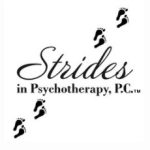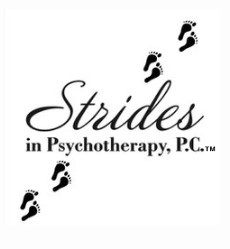Testing & Evaluations
We offer written estimate for costs of all evaluations after the initial Intake
Custody Evaluation:
Our psychologist is often court appointed. We clinically interview each family member as well as evaluate long standing family patterns. Then we use objective testing measures to support clinical diagnosis, describe personality development, and characterize parenting strengths and weaknesses. This leads to recommendations to the court regarding custody, visitation and/or a parenting plan as well as treatment planning, collateral resource development, and general case management suggestions.
IQ and Autism Testing:
This form of testing is the most commonly known but also very misunderstood. While it is one way to measure how “smart” someone is, it is not the only way to determine ability. It does give the evaluator a “score” that reveals how one’s intellect has developed, but it also tells a trained psychologist about many other skills that make up cognitive ability. It sees how neurodivergency effects learning. Tailored to you. This includes understanding memory, attention, fine motor skills, verbal expression, and perceptual abilities. We look for patterns of strengths and weaknesses so you can understand yourself better. IQ testing is often requested for private school placement and entrance to Talented and Gifted programs. It is also the first component of a learning assessment for a person having problems at school or work. Sometimes it is done to measure change after an accident, illness, or psychiatric crisis in order to assess if there is change in ability. Adults as well as children can have an IQ test.
Academic Testing:
The first part of a learning assessment is usually an IQ test. The second part is academic testing. This is a thorough assessment of major subjects of study that are foundational for learning. This includes math, writing, reading, spelling, listening comprehension, and reading comprehension. If a person has a statistically significant difference between their IQ score and their academic ability, we diagnosis a specific learning disability. This type of evaluation can assess if a child needs an INRI intervention, a 504 plan, or full Child Study Team evaluation. It can also be useful as a second opinion following a Child Study Team evaluation. It types of assessments provide guidance for which school or grade is appropriate for a particular child. It can suggest which additional educational programs or tutoring might help a child perform better. Even when a learning disability is not diagnosed, we often find valuable information about the strengths and weaknesses of your child’s academics, as well as the most effective ways to teach your child further. Some Talented and Gifted programs require this additional testing. Often exceptions, like extra time, during standardized testing, (SAT, ASK, or GRE) this type of testing is additionally required.
ADHD Assessment
Parts of the Evaluation
- Standardized testing: We use the Achenbach Scale, Connor’s Scale or the Brown Scale which have sampled large numbers of children who have and have not met criteria for ADHD. It also includes diagnoses that are often misinterpreted as ADD or ADHD.
- Interviews of multiple sources for clinical symptoms: We can, with your permission, get the perspectives of teachers, after-school personnel, tutors, babysitters, school counselors, coaches and others who have seen your children in a variety of places. We want to get as thorough and well rounded a description of your child as possible. ADD and ADHD are considered to be conditions that are consistently present. If symptoms “disappear” in certain contexts it could be a clue that this is not the right diagnosis.
- Use of the criteria of the Diagnostic and Statistical Manual: This diagnostic tool helps us standardize our diagnosis with clinicians around the world.
- Observation of the child: When we meet with your child, we will observe him or her in the office doing tasks that s/he cannot prepare for. This shows us how s/he learns new material and how long s/he can attend to activities both novel and repetitive. This allows us to see how your child responds to frustration and self-criticism. Sometimes, before coming to the office, we do an observation of the child in their daycare center or classroom to see them in their typical environment. We can see both how they act compared to their peers as well as what can changes can be made in their learning setting to assist their performance.
Objective Testing:
Psychologists use many objective tests that can help determine quickly whether the experiences a person is having match a clinical diagnosis. These diagnoses can be mood disorders like Anxiety or Depression or personality structures like Borderline or narcissistic personality disorder. Objective testing allows us to compare your experience to the experience of a large group of people, who have met criteria for a particular diagnosis. This is done through a clinical interview and paper and pencil tests, which the client fills out.
Many people need this type of evaluation for adoptions because the adoption agency requires it or the country hosting the adoption does. Courts require this type of evaluation to make decisions about parenting, to make treatment plans, to assess the impact of trauma, or to determine liability in legal cases. Sometimes psychologists will refer clients for testing with us prior to treatment in order to set priorities and determine the best focus of therapy. Other psychologists refer clients to us after treatment has begun because they are puzzled when treatment is not as effective as they anticipated.

